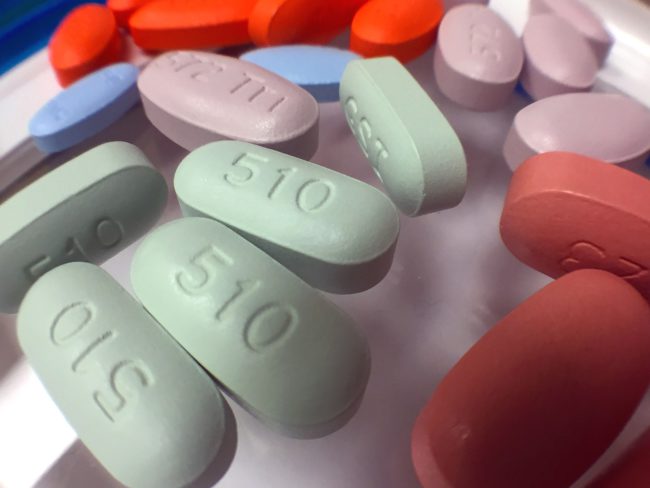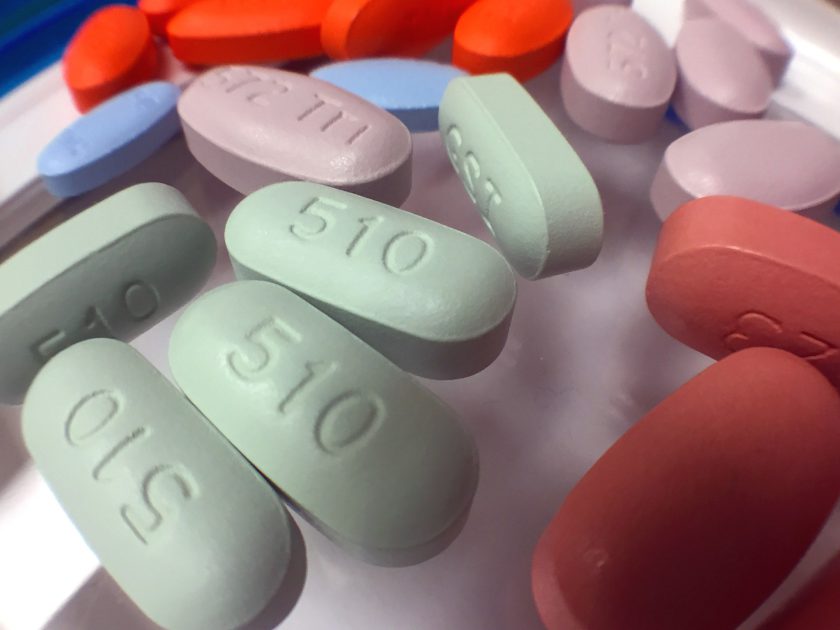
There has been the announcement of two new highly effective antiviral drugs that have been designed to treat COVID. The arrival of these brings real hope that we can finally get on top of COVID.
Up until now, the best strategy for most was prevention. That includes social distancing, mask-wearing, and of course the vaccine. All these together are effective tools that help to prevent COVID. What is new and has been announced are two antiviral drugs that can be used to very effectively treat cases of COVID infection in the early stages.
When combined with the previous prevention strategy, we have now potentially reached a game-changing moment.
The desire to have an effective antiviral for COVID has been on the wish list since the beginning. Previous candidates, such as the infamous Hydroxychloroquine and Ivermectin, dashed hopes because they did not work. That has all now changed with the news that we now do have antivirals well down the pipeline.
What has been announced is not just one, but two independently developed drugs …
- The UK approved Molnupiravir by Merck – Nov 4th
- The Pfizer announced Paxlovid – Nov 5th
The close alignment of both is not a coincidence. I suspect, and this is just a guess, that the Pfizer announcement was a response to the Merck one. I can see in my mind somebody at Pfizer responding to the Merck announcement by rushing down to the Media department and pressing them to also announce that they are also in this game.
Just how effective are these, what do they actually do, and where do things now stand with each?
Let’s take a quick look.
Molnupiravir by Merck
You can find Merck’s press release here dated Nov 4, 2021.
The timing of this announcement has been triggered by its authorization by the U.K.’s Medicines and Healthcare Products Regulatory Agency. The scope of that authorization is specifically for the treatment of Mild-to-Moderate COVID-19 in adults with a positive SARS-CoV-2 Diagnostic Test and is also specifically for individuals who have at least one risk factor for developing severe Illness.
On what basis has this authorization been granted?
Their press release explains …
The authorization is based on positive results from a planned interim analysis from the Phase 3 MOVe-OUT clinical trial, which evaluated molnupiravir 800 mg twice-daily in non-hospitalized, unvaccinated adult patients with laboratory-confirmed mild-to-moderate COVID-19, symptom onset within five days of study randomization and at least one risk factor associated with poor disease outcomes (e.g., heart disease, diabetes).
But what does this mean, how good is it?
They had 775 patients in the trial:
- Only 7.5% taking molnupiravir needed to go to hospital
- Of those taking the placebo, 14.1% of them ended up in hospital
In other words, taking this cut hospital admissions by about 50%.
One other key insight is this; once you are in hospital with severe COVID the damage inflicted by it has happened. Taking the antiviral did not help at that stage.
If we can identify the high-risk individuals, for example, older adults with heart, lung, or kidney disease, diabetes, or cancer, and get this to them as soon as they develop symptoms, then this will have a hugely beneficial impact.
Let’s move on to look at the other one.
Paxlovid by Pfizer
This is similar to the previous Molnupiravir, it is also an antiviral that is specifically for high-risk individuals and needs to be given as soon as COVID symptoms develop.
You can find Pfizer’s Press release here, dated Nov 5, 2021.
Within it, they explained what their preliminary phase2/3 trials have revealed so far …
The scheduled interim analysis showed an 89% reduction in risk of COVID-19-related hospitalization or death from any cause compared to placebo in patients treated within three days of symptom onset (primary endpoint); 0.8% of patients who received PAXLOVID™ were hospitalized through Day 28 following randomization (3/389 hospitalized with no deaths), compared to 7.0% of patients who received placebo and were hospitalized or died (27/385 hospitalized with 7 subsequent deaths).
In one word – wow.
The press release goes on to explain that the data they now have is good enough for them to submit all of it to the FDA for Emergency Use Authorization (EUA) as soon as possible. That has now happened.
They have a nice quote within their press release as well …
“Today’s news is a real game-changer in the global efforts to halt the devastation of this pandemic. These data suggest that our oral antiviral candidate, if approved or authorized by regulatory authorities, has the potential to save patients’ lives, reduce the severity of COVID-19 infections, and eliminate up to nine out of ten hospitalizations,”
Albert Bourla, Chairman and Chief Executive Officer, Pfizer
What happens next?
The clinical trial data for both antivirals suggest that they are very effective.
Let’s make a couple of reasonable assumptions. Independent scrutiny of all the data stacks up and full approval for use is granted.
Then what?
These are cheap to manufacture in bulk. It is also simple to administer; no needles, you just take a pill, so you can have this at home.
If widely used, then these antivirals would drastically reduce the hospitalizations and deaths from COVID. This would be very dramatic hence I’m latching on to the term deployed by Pfizer – “Game-Changer”.
It means that COVID becomes something that is more akin to a bad flu that, if caught early, can be managed. Like flu, we would also need regular shots and so getting as many people as possible vaccinated is still necessary.
In other words, the COVID pandemic goes away and it instead becomes endemic (predictable and manageable).
To be clear, this is not a done deal. There does need to be further confirmation that these antivirals truly are safe and highly effective, but assuming it does pan out that way, and the early data would suggest it will, then we would see a huge decline in COVID deaths.
The end really is potentially within reach now.
Meanwhile
We have all watched the utter insanity of some promoting drugs that have been demonstrated to not work, Hydroxychloroquine last year, and Ivermectin this year, while at the same time rejecting the robustly tested vaccines.
How will such lunatics respond to this news?
You can already see it happening. The newest claim is that it is all supposedly part of some grand nefarious plot to suppress Hydroxychloroquine and/or Ivermectin so that these new antivirals could be sold for a profit.
Both Ivermectin and also Paxlovid are indeed protease inhibitors. Ivermectin did work in-vitro. After working in cell cultures they then moved on the mice and discovered the deal-breaker. A safe dose of Ivermectin needed to tackle COVID was not achievable.
Dr. David Gorski has already tripped over this claim and debunks it here in great detail.
When faced with this ongoing flow of batty conspiracy claims, your best bet is to simply tune them out, roll your eyes, and move on, life is just too short. Listening to actual subject matter experts instead of the self-appointed ones vastly increases your chances of being right.
Well OK, one last quip. The truth is that some of these conspiracy theorists are so dense that they remain in darkness because light bends around them.
Further Reading
- Science Based Medicine, Dr Steve Novella (Nov 10) – Two New Antivirals Targeting COVID-19
- Science Based Medicine, Dr David Gorski (Nov 15) – Pfizer’s new COVID-19 protease inhibitor drug is not just “repackaged ivermectin”
- Nature (Nov 10) – COVID antiviral pills: what scientists still want to know
… and for completeness, here are both press releases:
- Merck Press Release (Nov 4) – Merck and Ridgeback’s Molnupiravir, an Oral COVID-19 Antiviral Medicine, Receives First Authorization in the World
- Pfizer Press Release (Nov 5) – PFIZER’S NOVEL COVID-19 ORAL ANTIVIRAL TREATMENT CANDIDATE REDUCED RISK OF HOSPITALIZATION OR DEATH BY 89% IN INTERIM ANALYSIS OF PHASE 2/3 EPIC-HR STUDY

That some treatments are starting to turn up is a good thing. Molnupiravir has some problems, and I notice the Wiki of the drug has completely erased that section. Given the very high cost (40x the manufacturing cost) as well as those concerns, I’d take a pass on the Merck drug.
The Paxlovid looks more promising.
Hopefully more of these treatments will be coming along.
One quibble with the article: The sentence about “prevention” didn’t mention ventilation. The CDC and WHO have screwed this one up very badly, and their fumbling needs to be corrected as often as possible.